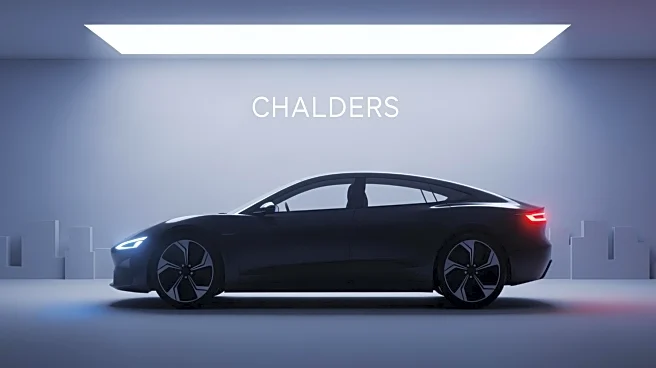What's Happening?
The U.S. electric vehicle market is experiencing notable shifts, with Rivian and Tesla facing challenges in maintaining their sales momentum. Rivian's electric delivery vehicles, the EDV 500 and EDV 700,
saw a peak in sales during the second half of 2024 but have since experienced a decline. The Rivian R1T electric pickup truck has also seen a drop in sales, despite a temporary increase in the third quarter of 2025. Meanwhile, the Rivian R1S SUV has performed better but still faces uncertainty following a recent sales bump. Tesla's Model S and Model X have seen significant declines from their previous high sales figures, with the Model S dropping from 50,000 annual sales to around 5,000-6,000. The Model 3 and Model Y have shown relative stability, but concerns remain due to the expiration of the $7,500 U.S. EV tax credit, which could lead to a sales collapse in the coming quarters.
Why It's Important?
The declining sales trends for Rivian and Tesla highlight the competitive pressures in the U.S. electric vehicle market. As more automakers enter the premium-class EV segment, Rivian and Tesla face increased competition, impacting their market share and sales performance. The expiration of the U.S. EV tax credit further complicates the situation, potentially reducing consumer incentives to purchase electric vehicles. This shift could affect the broader adoption of electric vehicles in the U.S., influencing environmental goals and the automotive industry's transition to sustainable energy solutions. Stakeholders, including automakers, policymakers, and consumers, must navigate these changes to ensure continued growth and innovation in the electric vehicle sector.
What's Next?
With the expiration of the U.S. EV tax credit, Rivian and Tesla may need to explore alternative strategies to boost sales and maintain competitiveness. This could involve introducing new models, enhancing existing vehicle features, or offering additional incentives to attract consumers. The broader industry may also see increased lobbying efforts to reinstate or modify tax credits to support electric vehicle adoption. As the market evolves, automakers will likely focus on innovation and cost reduction to appeal to a wider audience. The upcoming quarters will be crucial in determining the trajectory of Rivian and Tesla's sales and their ability to adapt to changing market dynamics.
Beyond the Headlines
The challenges faced by Rivian and Tesla in the U.S. electric vehicle market may have broader implications for the global automotive industry. As the U.S. market influences international trends, other countries may observe these developments and adjust their policies or strategies accordingly. The situation also underscores the importance of government incentives in driving consumer behavior and supporting industry growth. Additionally, the competitive landscape may push automakers to prioritize technological advancements and sustainability initiatives, potentially accelerating the transition to cleaner transportation solutions worldwide.











